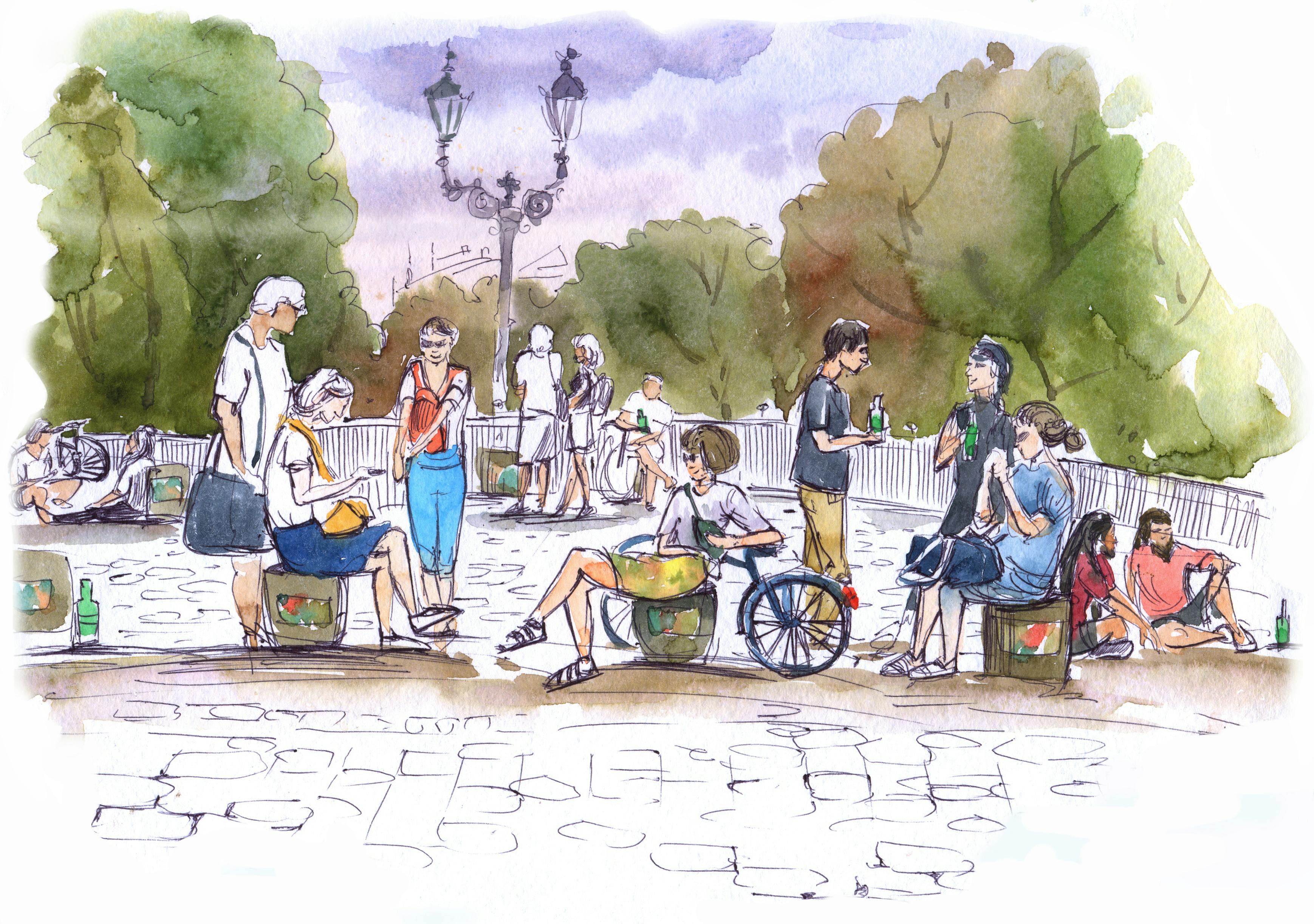We’re Socially Rusty After Lockdown. But That Need Not Mean a Slip of the Lip on the Ship
This is the second of a series, written exclusively for Silversea’s Discover Blog, about the realities of travel as we all start to move — some of us more slowly than others — back to resuming our cruise vacations. Written by longtime Los Angeles Times travel editor, Catharine Hamm, who describes her columns as “one woman’s take on navigating the banana peels of our new travel realities,” the author aims to keep us laughing (and maybe groaning) all along the way.
Dwight Morrow had invited his business partner to his home, and he was worried. After all, when your business bestie is the powerful financier and banker J.P Morgan, a misstep is unthinkable, never mind unwelcome
Morgan, often described as imposing because of his height and carriage, also had an enormous misshapen, red-purple nose, the result of a medical condition. Dwight made sure his wife, Betty, coached their daughter to avoid any reaction to or mention of the unsightly facial real estate. Morgan was said to be so sensitive he often used his cane to whack photographers who tried to take his picture.
On the appointed day, Morgan arrived, introductions were made and the child behaved perfectly. Undoubtedly breathing a mental sigh of relief, Mrs. Morrow offered her guest some refreshment, reportedly asking him, “Would you like nose in your tea, Mr. Morgan?”
The recounting of this story takes various forms, and it may be apocryphal. Nowhere is it reported whether Mrs. Morrow prayed that a black hole would open and swallow her bodily. But certainly she would have responded with the kind of genteel apology one offered in the early 20th century: “I beg your pardon. I misspoke. Sugar with your tea, Mr. Morgan?”
Asking for mercy and moving on may be our most valuable tool for surviving this pandemic-scarred age, when our conversational abilities feel as though they have withered, thanks to a thoughtlessness that comes with preoccupation.
And what are we if not a world preoccupied? Which begs the question of when, on the first cruise after captivity, the fatal faux pas will occur? Will it be as you are having pre-dinner drinks with a new acquaintance — let’s call him Eric — and are finally beginning to relax and enjoy the thrill of socializing again as you feel the gentle swaying of the ship and suddenly blurt out, “Whoever invented Zoom should be condemned to the seventh circle of hell!” It is then that you realize your new pal Eric is Eric Yuan, who founded Zoom Technologies.
It is unlikely you will commit this exact lapsus linguae on a post-vaccination voyage, but we still travel with the knowledge that no one is immune because we cannot be inoculated against a slip of the tongue, especially if our social nicety muscle has shriveled from disuse. It’s understandable, really, given that the people with whom we interacted briefly but sometimes daily vanished from our lives and with them, the breadcrumbs that lead to the practice of low-level civility, a sort of safety net for maintaining our social skills.
Or, as travel journalist and friend Barbara Ramsay Orr recently mused on Facebook, “One positive outcome of the pandemic: I think I can now make a good loaf of bread with my eyes closed. However, I think I’ve forgotten how to make small talk.”
Fear not, said Michele Nealon, a clinical psychologist and president of The Chicago School of Professional Psychology, You don’t forget social skills, Nealon said — but you might be a little wobbly at first, because it’s “like riding a bike again.”
My heart sank. Last time I was on a bike, it was a Harley Davidson much larger than my own motorcycle. What could go wrong when you’ve been asked to ride a Hog on stage at the grand finale of a convention? “Wobbly” doesn’t begin to describe it. When I returned to the office a couple of days later, one colleague spied my black eye and broken glasses and said: “Wow. That must have been one helluva convention.”
Couple this with what I am sure is genetic predisposition to saying the wrong thing even under the most mundane circumstances and I think a crash-and-burn upon re-entry is inevitable, at least for me. I suspect this because at another convention I ran into the wife of a colleague, whom I hadn’t seen in a while, and she asked, “Where’s your husband?” To which I replied, truthfully but without thinking, “Dead.” The look on her face suggested I might as well have asked, “Would you please hold this live grenade for me?”
My trauma was singular then but was as raw as our shared pandemic trauma is now, and, Nealon said, “trauma” is the right word. So, yes, one day we’ll be on a shore excursion and sharing our high and low pandemic points with our new acquaintances when we thoughtlessly reveal we coped with toilet-paper shortages by using snowballs as a stand-in for tissue.
Too much information may be the result of too little conversation, but the only remedy is to acknowledge our lapse and hope for grace. Then we put our social skills back in gear, leaving the wreckage in the rear view, learning from it but not defined by it.
I think Betty Morrow would approve.
